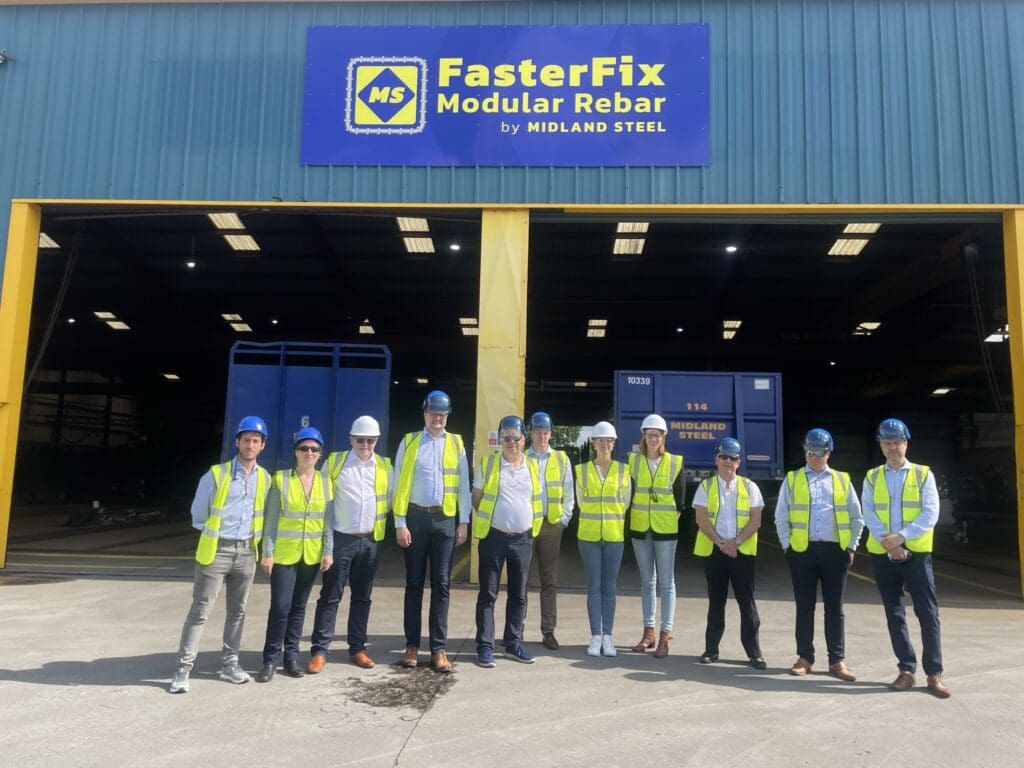Wales (Caerphilly) and Ireland (Dublin) based technology business, Nightingale HQ (NHQ) has supported a major UK & EU consortium as it looks to make reinforcement steel manufacturing greener.
The collaboration includes steel manufacturers Midland Steel and Bastal AS, Kuka Robotics, civil engineers OCSC and research partners VTT. The project is funded by EIT Manufacturing and Innovate UK.

The objective of the work is to reduce carbon emissions in steel manufacturing through standardisation, modular prefabrication with advanced Building Information Modelling (BIM) and optimisation solutions. NHQ’s role is to optimise the planning production process to drive a reduction in rebar waste and associated carbon emissions.
A significant part of the project focuses on rebar, a key material in reinforced concrete which poses a major environmental challenge. Rebar produces more carbon dioxide per unit weight than other construction materials and in 2019 the carbon emissions from rebar waste was estimated to be 9.7 million tons.
Nightingale HQ’s CEO Ruth Kearney said: “We are entering into an era where manufacturers’ adoption of greener software principles is a growing strategic move to enhance sustainability. This is no small environmental challenge and one where smarter technology choices and greener practices will contribute to carbon reductions and savings. We are excited about the potential impact we can have within the sector, along with our industrial partner Midland Steel”
As part of the project, the tech startup has released a whitepaper detailing its technological approach to its solution infrastructure. Titled Serverless Cloud Architectures for Sustainable Manufacturing Compute, the paper provides insight into their carbon-aware software development approach focusing on energy-efficient coding and code optimisation for energy efficiency.
CTO Chris Wilson added, “We want to emphasise the shift towards serverless computing as a key element in reducing environmental impact while increasing operational efficiency in manufacturing. In 2024 we’re focused on ramping up development for our clients using greener software principles in what’s proving to be a changing and challenging industrial environment.”

